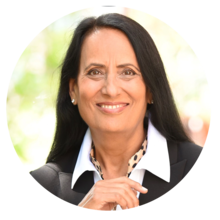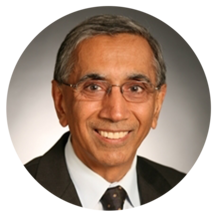About this Presentation
Handling uncertainty, especially within organizations, has to make a clear distinction between two different types of uncertainty. One is defined as a state where a real disaster is possible, but with very low probability. The other faces 'common and expected uncertainty'. The webinar describes the current common misunderstanding of the second type of uncertainty, in spite of its huge economic impact on every organization. The concept of 'the reasonable range' and how it is connected to the TOC notion of a 'buffer' is presented. These concepts, coupled by some simple lessons from statistics, are translated into a decision-making process and it invokes even the POOGI (process of ongoing improvement) concept to further improve the way common and expected uncertainty is handled. The webinar would demonstrate the generic solution in the known TOC methodologies for S-DBR, distribution and CCPM and might show further insights where different buffering schemes should be used. About this series: Being able to make good decisions is a requirement of any manager and leader. In this series Eli Schragenheim (the other Eli) wishes to think aloud on how TOC guides us to be better decision makers. The most interesting question to be dealt in the series is what 'hard decisions' are and how to make them 'not-too-hard decisions'? There are two different categories of causes for the difficulty to arrive to a clear decision: complexity and uncertainty. Complexity is nicely handled by TOC through focusing and outlining the cause-and-effect relationships of the most critical elements. In itself this is already a valuable addition to the work of Herbert Simon, another influential figure on management. Uncertainty is another element where TOC has provided certain solutions for some specific cases, but, yet, does not provide a generic way to systematically deal with uncertainty.
What Will You Learn
To help you get the most value from this session, we’ve highlighted a few key points. These takeaways capture the main ideas and practical insights from the presentation, making it easier for you to review, reflect, and apply what you’ve learned.

Decision making under uncertainty is a critical aspect of organizational management and should be approached with a focus on common unexpected uncertainty.
Forecasts should include a reasonable range of possible results, rather than a single number, to account for inherent uncertainty.
Intuition plays a crucial role in decision making, especially when dealing with uncertainty. While it may not be entirely reliable, it is often the best information available.
Instructor(s)
Eli Schragenheim

Ms Alka Wadhwa
Alka Wadhwa is an experienced consultant and process improvement expert with over 24 years of expertise in the Theory of Constraints (TOC), Lean Six Sigma, and organizational performance optimization. She has successfully led projects in healthcare, financial services, and manufacturing, driving significant improvements such as a 67% boost in hospital operations and a 140% increase in outpatient visits.
Previously, Alka Wadhwa spent 17+ years at GE Global Research Center, where she led initiatives to enhance various GE businesses through advanced technologies, process redesign, and system optimization. Founder of Better Solutions Consulting, LLC, she specializes in using TOC, Six Sigma, and data analytics to streamline operations and build high-performance teams.
Her work has earned her multiple accolades, including the Empire State Award of Excellence in healthcare.

Dr Gary Wadhwa
Dr. Gary Wadhwa is a Board Certified Oral & Maxillofacial Surgeon with extensive experience in the field. He completed his Oral & Maxillofacial Surgery training at Montefiore Hospital, Albert Einstein College of Medicine in Bronx, NY, and has served as an Attending at prestigious institutions like St. Peters Hospitals, Ellis Hospital, and Beth Israel Hospital in NY. With a career spanning over two decades, he was the former CEO and President of a group specialty practice in NY from 1994 to 2015. Dr. Wadhwa holds an MBA from UT at Knoxville, TN, and has undergone additional training in System Dynamics at MIT, Health System Management at Harvard Business School, and Entrepreneurship and healthcare innovations at Columbia Business School. Committed to expanding access to Oral & Maxillofacial Surgery care, he is currently engaged in a meaningful project to provide healthcare services to underserved populations in inner city and rural areas through non-profit Community Health Centers.
